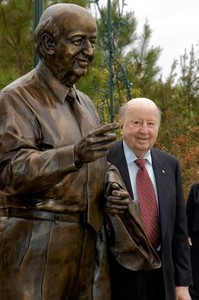(p. A3) SAN FRANCISCO–California’s economy is adding jobs far faster than affordable places to live, forcing some employers to leave the state as they expand.
. . .
Karen Holian, 44 years old, joined the startup Lottery.com when it was founded here in 2015. Though a San Francisco native, Ms. Holian, a marketing manager, was excited when the company last year moved to Austin, Texas, because she could finally plan to buy a home.
“In San Francisco, that never seemed like a possibility,” she said. A mother of two, she is for now renting a four-bedroom house for $2,000 a month, a third of what a comparable place costs in her hometown.
Lottery.com CEO Tony DiMatteo said that as the company grew, he found it difficult to persuade current and prospective employees to move to the area. “We can give them a much better bang for their buck if we’re not in San Francisco,” he said.
. . .
Carl Guardino, chief executive of the Silicon Valley Leadership Group, said CEOs tell him “that any new job that doesn’t absolutely need to be in the Bay Area is located outside of the Bay Area.” The public-policy advisory group counts some 360 companies, including Silicon Valley’s largest, as members.
. . .
Texas has drawn more companies leaving California over the past decade than any other state, according to research by Joe Vranich, a relocation consultant who encourages businesses to leave California.
Housing costs are “a major selling point for us,” said Mike Rosa, senior vice president of economic development for the Dallas Regional Chamber. “It’s a factor in just about every [relocation] search we see.”
For the full story, see:
Nour Malas. “Firms Quit California Over Costs.” The Wall Street Journal (Tuesday, March 20, 2019): A3.
(Note: ellipses, and bracketed year, added; bracketed word, in original.)
(Note: the online version of the story has the date March 19, 2019, and has the title “California Has the Jobs but Not Enough Homes.” The sentence quoting Karen Holian appeared in the online, but not the print, version.)



